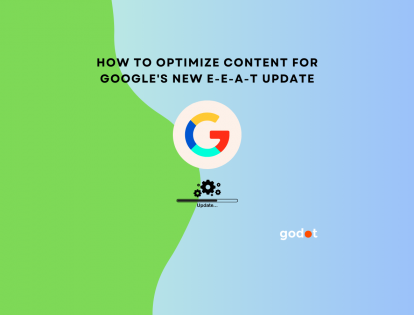Tag: google
-

How To Optimize Content For Google’s New E-E-A-T Update
The Helpful Content Update Google released last year made many SEO professionals flip the way they build content. The main concept is quite simple – if you write on a subject, you need to make sure it is helpful and useful for the reader. However, this is not a new concept at all. If an…
-
What Google Wants You to Know Again: The 100 Links Per Page Guideline is Gone
This week, Matt Cutts talked about the permissible number of links on a webpage. SEO professionals, content marketing professionals and webmasters have been wary of adding too many links on a page for the obvious reason that it will spring search engine spiders into a spam alert. The understanding floating around is that any more…
-
Matt Cutts Rounds Up the Top SEO Mistakes that Most Companies Make
Even with excellent content and attractive websites, most companies fail to attract the expected amount of web traffic because of basic SEO mistakes that they commit. In this video, Matt Cutts – Head of the Google Webspam team lists the top SEO mistakes that he sees frequently. According to him, contrary to popular belief these…
-
SEO Updates We Can Expect from Google in The Next Few Months
As Google has released many changes to its search engine algorithms and come down severely on suspicious SEO practices, people are always curious about upcoming changes in terms of SEO. Most people have to settle for speculations as Google is very tight-lipped about future changes it has planned. In this video, Matt Cutts – head…
-
Google’s Penguin 2.0 is Up Next
Last year, Google launched its Penguin update to fight bad linking techniques and to crackdown on spammy content. Matt Cutts – Distinguished Engineer at Google, has just announced that the next major algorithm change will be out in a few days. SEO experts are calling this new set of algorithm changes “Penguin 2.0” and even…
-
Are Single-Page Websites Search Engine Friendly?
Minimalistic web design is all the rage nowadays with many companies adopting simple color palates and single page designs for their websites. The single-page websites run on extensive CSS and JavaScript components, and are low on text. The aim is to appear hip and trendy. But are such websites easily crawl-able too? And the big…
-
What will Google Search Look Like in 10 Years?
Technology is advancing at such a rapid pace that every few years our lives are being completely transformed by it. Gone are the days when computers could understand only command line instructions. Now computer programs can understand and analyze your behavior, and even recommend products that are perfectly suited for you. Some computer applications can…
-
How to Ensure That Google Knows Your Content is Original
In a perfect world, no one would rip off the content from your website and use it on theirs and Google would be perfectly aware about who the original author of the content is. Creating original content is a major struggle for most companies and content creators. Some people even take the easy route and…
-
Great Content that Performs Well in Google Search Results
The ultimate goal of any content marketer or a content marketing campaign is to ensure that the online content allows a website to rank well on Google search results. In a bid to improve rankings quickly, there are many companies and marketers who have resorted to black hat SEO techniques like keyword stuffing, buying links,…